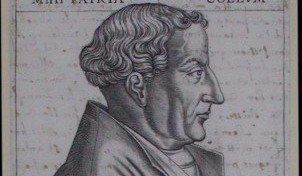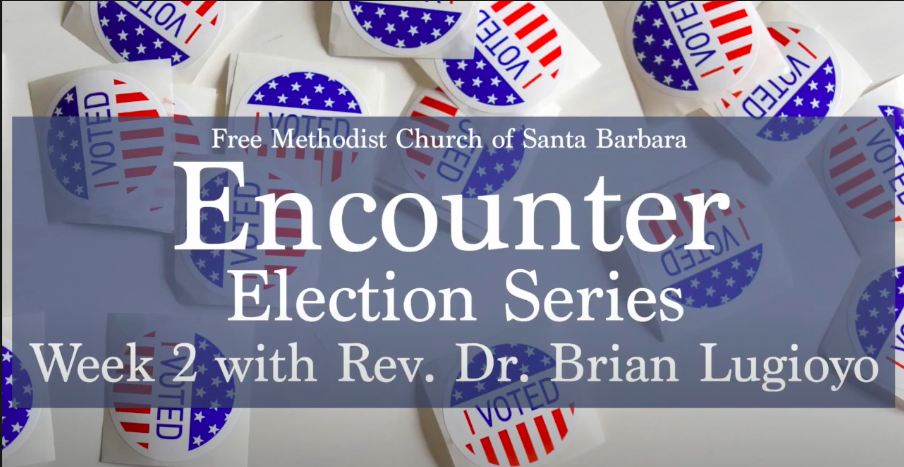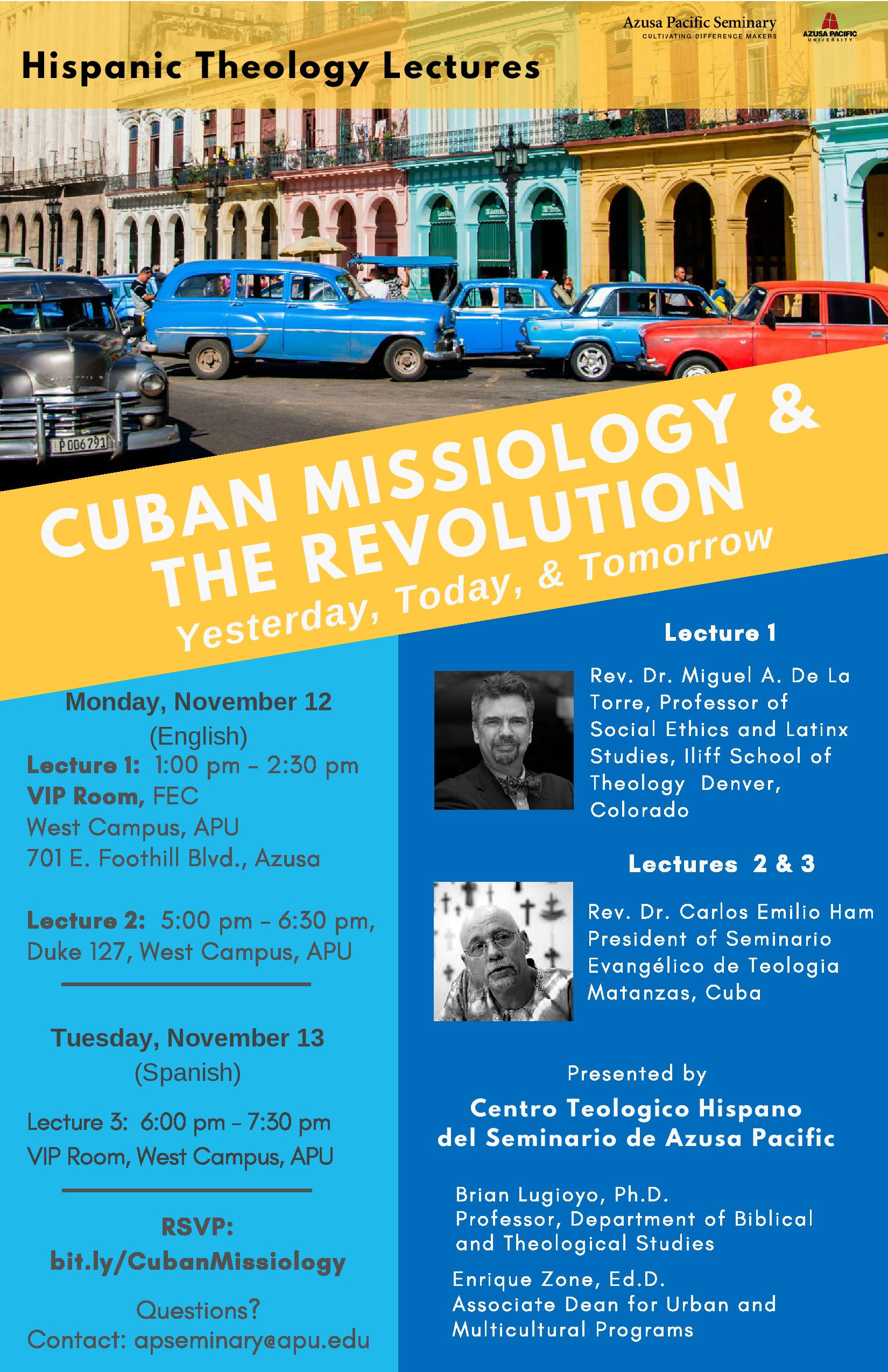Protestantism: A Motherless Christianity
The text below is a draft copy of my chapel sermon for Azusa Pacific University ( watch here
) for the commemorating of the 500th anniversary of the Reformation. My chief source for the material on Mary during the Reformation comes from Diarmaid MacCulloch's essay "The Virgin Mary and the Protestant Reformers" in
All Things Made New: The Reformation and Its Legacy
(OUP, 2016)
and my quotations from Jean Vanier come from Drawn into the Mystery of Jesus Through the Gospel of John
(Paulist Press, 2004
) and The Gospel of John, the Gospel of Relationship
(Franciscan Media, 2015).
Protestantism: A Motherless Christianity (delivered at APU chapel on 10/23/2017)
In a week some of you are going to mourn that you are too old to get free candy. But this year, while the majority is celebrating Halloween, thousands of Christians will be celebrating the 500th anniversary of the Protestant Reformation. 500 years ago on the 31st of October 1517 Martin Luther posted his 95 theses and the infighting in the church dramatically escalated and spread. The verbal and physical abuse reached such heights of maliciousness that the church was separated. Families were divided. The Western Church split. And 500 years later, the West is still experiencing the pain of that tragic divorce. So how should we commemorate the sin of disunity and divorce?
I am an ordained pastor in the Free Methodist Church (a Protestant denomination). And I grew up in a Cuban Protestant family. My grandfather would often refer to the Pope as the Antichrist—a sentiment not uncommon for Latino/a Protestants to hold. And throughout my life as a Protestant in Evangelical Non-Denominational churches, I was told that the people in the churches across the street didn’t believe that Jesus saved them – I was told they worshipped Mary. I was led to believe that spending time thinking about the mother of Jesus was dangerous, if not evil; in the Protestant imagination she mysteriously entices people to idolatry. This is what I believed for many years. And for many Protestants this is a familiar experience, we grow up, are taught, and live in a separated church where our Protestant churches play the role of the bitter divorced father, who has nothing good to say about our mother.
500 years ago the fight over the mother of Jesus reached such heights that she literally became a battered mother. When the reformation spread, so did the defacing of Marian images, especially in the shrines devoted to her. Here is the Virgin Mary of Valladolid in Spain. In 1596 the English took over the Catholic city of Valladolid, they dragged the statue of Mary from the church into the market square where they cut off her arms and mutilated her face. Repeatedly, over and over, this act would be replayed throughout Protestant Europe. And we have been shaped by this domestic violence.
Protestants also reframed how we were to view Mary as a biblical character. Reformers in the 16th and 17th centuries sought out to pacify the mother of our Lord – diminishing her prophetic nerve in Scripture, especially in the Magnificat where she challenges the rich and powerful. Instead they would reframe her as a submissive and humble widow. If you were a Protestant and wanted to talk about Mary then you could only do so by highlighting her passive femininity. And we have been shaped by this silencing sexism.
Mary’s image would come to be replaced by images of the male heroes of the Reformation. One of Luther’s favorite images was this frequently printed title page to his German Bible. Who is standing under the cross? Who is missing? Under the cross are Martin Luther and Johann Friedrich (MacCulloch, 52). Mary has disappeared. And that reveals a great tragedy for Protestants. Our mother has been replaced and ignored. And we have been shaped by that abandoning of our mother.
The diminishing and disparaging of Mary, the Mother of God, is one of the saddest – and often neglected – consequences of the Reformation for Protestants. So when I was asked to speak in chapel on the Reformation, I thought that the best way of commemorating the Reformation would be to point out something we’ve lost: Our Mother.
Please stand for the reading of the Gospel. John 19:25-28
Now, standing near the cross of Jesus were his mother, and his mother’s sister, Mary the wife of Clopas, and Mary Magdalene. When Jesus saw his mother and the disciple whom he loved standing beside her, he said to his mother, “Woman, behold your son.” Then he said to the disciple, “Behold, your mother.” And from that hour the disciple took her into what was truly his own.
The Word of the Lord. Please be seated.
Above is a Russian Orthodox icon of the crucifixion from the late 14th century. I want to make a couple observations on the passage using this icon.
Mary is with Jesus. Peter and many others have denied Jesus, and fled. But Mary is here with Jesus. Mary has been with Jesus from birth. And here she is again with her vulnerable Son.
The theologian Jean Vanier says this:
“Mary has always known the weakness of Jesus. She had held the tiny Jesus in her arms, she had fed him her milk, she had loved him, she had touched him with tenderness, and she had looked after him when he was little. When he cried, she was there to console him and to love him. Mary does not fear a humble, little, and vulnerable Messiah” (Vanier, Relationship , 115).
Mary is not afraid. Mary is faithful. She loves her Son, Jesus. Here she is at the foot of the cross. She will stay with him to the end.
Jesus is her son. Jesus has her human DNA in his body. Think about it, Mary is the one who provides to God the human flesh of our Lord and Savior. The flesh of Mary is taken into God’s life. And so, Mary’s flesh comes to represent all of humanity’s flesh; her flesh is our flesh, the flesh that God takes into his life through his Son Jesus. In this way, Mary plays an incredibly important role in our story since it is through her that all humanity is connected to Jesus. Through Jesus’s humanity, Mary’s and our humanity, is taken into the life of God. We stand before God in the humanity of Jesus through the assumed flesh of Mary. Think about that.
Also here in this icon we see Jesus on the cross facing his mother. We see the disciple whom Jesus loved; John is looking downcast. And we see Mary looking at John while pointing to Jesus. In all the icons of the East Mary is depicted as directing our gaze toward her Son. She leads us, she points us, to Jesus.
Remember the story at the beginning of John’s Gospel, where Mary and Jesus and some friends are at a wedding in Cana. Here Mary tells Jesus that the wine is finished, he says: “‘Woman, what concern is that to you and to me? My hour has not yet come.’ His mother said to the servants, ‘Do whatever he tells you.’” Jesus only calls his mother “Woman” in two places in the gospel, at the wedding and at the cross (the gospel lesson we read). So here you have two stories that are connected. Second, at the wedding, Jesus introduces the concept of his “hour” that has not yet come. John tells us that his hour is the hour of his death, the crucifixion. The cross is the hour when all is finished. Again, here we see that Cana and Cross are bookends to the story. Lastly, and here I want to return to the icon, Mary tells the servants “Do whatever he tells you.” “Do whatever my Son Jesus tells you.” She does not say do what I tell you, but she points to her Son. The mother of Jesus in icons and in the gospels is repeatedly pointing us to Jesus. Here in this scene John’s eyes are looking at the ground (his gaze is lost), but Mary is looking at him gently gesturing that he lift his eyes. She does this because she is now his mother too, and mothers remind us where to look. Think about that.
On the cross Jesus is dying; we are at the end of the gospel. Here he finishes what he came to do. His hour has arrived and his last act here is of uniting his mother to the disciple who he loves – and this disciple stands in for all disciples, for you and for me. Jesus looks down and sees his mother and says: “Woman, behold your son.” And then he says to the disciple “Behold, your mother.” Jesus did not say ‘behold MY mother’, rather he said ‘ YOUR Mother.’ This is an adoption scene.
Jesus has given us his mother and in so doing he makes us his brothers and sisters. “Behold, your mother.” Jesus has just united his mother and his disciples in a beautiful act of communion. At the very beginning of the Gospel in the prologue, we are told that we will be given power to become children of God. And here we see that reality.
In John chapter 17, Jesus prays: “I glorified you on earth by accomplishing the work that you gave me to do.” And what was that work he was given to do by the Father? It was the work of unity and communion, “that they may all be one. As you, Father, are in me and I am in you, may they also be in us, so that the world may believe that you have sent me. … so that the world may know that you have sent me and have loved them even as you have loved me” (John 17:21, 23). Vanier states: “The final gesture of Jesus is to bring Mary and John into oneness as he and the Father are one, to create a covenant of love between them” (Vanier, Drawn into the Mystery, 324-325). Jesus prays and works for unity, for unity. We are brothers and sisters of the same mother. Think about that.
And lastly, here is John, the disciple whom Jesus loved. We are that disciple, we are that beloved of God. Here in the icon John is downcast, he is lost in grief, fear, and remorse. He cannot look to Jesus, he is afraid. We are the disciples whom Jesus loves. We are anxious about the future, we are heart broken over failed relationships, we are troubled by our repeated failings, we have suffered too many losses, we are curved in on ourselves in worry, it is too hard to look up, we are lost. Jesus knows we need a mother’s help, so he gives us his own. Sometimes we need her encouraging nudge to see Him, to see our brother, and be reminded that we are not alone, that we are part of God’s beautiful family. Mary tells us, “Look up, look to Jesus – do whatever he tells you, do not be afraid” Think about that.
In conclusion, disunity is a sin. Our disunity and endless Protestant separations and divisions are a witness of brokenness, the anti-image of the love between the Father and the Son. How do you commemorate a separation, a divorce? Well, you start by remembering your mother and listening to her admonition to “Look up, and Do whatever he tells you to do!” And this is what Jesus is telling us to do – he says “ I give you a new commandment, that you love one another. Just as I have loved you, you also should love one another. By this everyone will know that you are my disciples, if you have love for one another” (John 13:34-35). So stop fighting, stop name-calling, ask for forgiveness, and seek peace. Befriend a Catholic, befriend a Protestant, befriend an Orthodox Christian and remember that we all come from the same mother. And she is one strong mother. … I don’t want a motherless Christianity.
Pray with me:
Father, 500 years of pain. 500 years of name-calling. Send upon us your rushing Spirit so that our hearts might be utterly broken by the many divisions we perpetuate and live in. We confess that we have not loved one another and because of our failure to love, we have failed to be seen as your disciples in the world. Father, we confess that way too often we look just like the world, especially in our divisions. Give us the strength and courage to seek friendship and unity, reconciliation and forgiveness.
We thank you for giving us Mary as our mother. Help us to cherish her as you cherish her. And teach us through her witness, how we can help usher all humanity to your Son, for the glory of your Name’s sake. In the Name of the Father, and of the Son, and of the Holy Spirit. Amen.
Let’s not celebrate our divisions; let’s work at coming together. Remember your mother!











